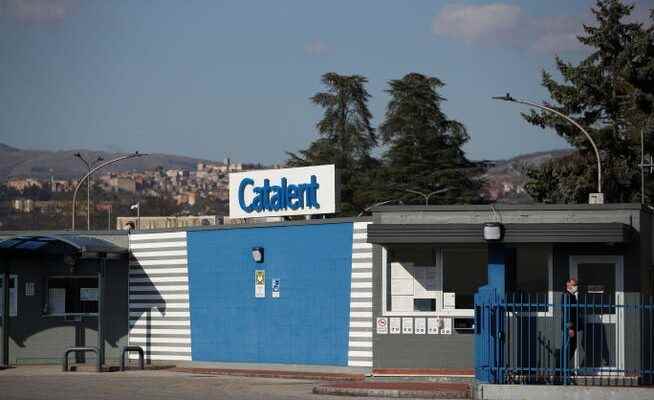Contract manufacturer Catalent has started to announce layoffs. Like Lonza, the US group has vaccine supplier Moderna on its list of customers. Compared to the beginning of the year, its market value has collapsed by almost 60 percent.
Declining business with the pandemic is troubling Catalent. The group of companies has more than 50 production sites spread over four continents and employs around 19,000 people.
Subcontractors like Lonza and Siegfried who produce medicines for pharmaceutical companies are usually not in the limelight. But after the outbreak of the pandemic, attention was suddenly focused on this industry because it was instrumental in producing vaccines in huge quantities and in record time.
Hundreds of jobs will disappear
The largest contract manufacturer in the pharmaceutical industry, Lonza, was busy building up capacities at the main plant in Visp and in the USA for Moderna, its Aargau competitor Siegfried in Germany for Biontech. Catalent, which is almost as big as Lonza in terms of sales, also sensed the big deal and signed deals with both Moderna and Johnson Johnson (J&J) as well as AstraZeneca.
Almost three years after the first cases of Sars-CoV-2 appeared, a hangover is spreading in this industry. The US company Catalent announced this week at its plant in Bloomington, Indiana 400 jobs to be cut. A further 210 jobs are to disappear in three other American production facilities.
In Bloomington, Catalent had set up a production facility for the customer Moderna that Around the clock, also on Saturdays and Sundays, ran. As recently as last year, the company had to work for all customers over 1 billion doses of vaccines manufactured to protect against infection with Sars-CoV-2.
According to analysts at investment bank Morgan Stanley, deals related to the pandemic, including therapeutics, brought the company around $1 billion in sales in the past fiscal year (ended June 2022). In the current period, however, a slump of around 60 percent is to be expected in this business, say the market observers.
Dietary supplements are also less in demand
However, declining business with the pandemic isn’t the only factor troubling the giant Catalent. The group of companies, which operates more than 50 production facilities spread over four continents and employs around 19,000 people, is also struggling with the consequences of the sharp increase in inflation. The dietary supplements, which the company also produces, are in less demand. In addition, some providers of prescription drugs and over-the-counter health products have started to reduce inventories. This leaves them with more cash.
All of this forced Catalent at the beginning of November 2022 to significantly lower its forecasts for sales and earnings development in the current fiscal year. Investors were shocked: the company’s share price fell by a further 36 percent. As of Thursday, Catalent’s market value was down to around $9 billion, down almost 60 percent from where it was at the start of the year.
Lonza is less affected
For Lonza it has gone down by 32 percent in the year to date and by 26 percent for Siegfried. When asked about Catalent’s problems and any parallels in its own business, Lonza’s media office declined to comment in detail. She left it at the words that they were pursuing a different business model and therefore could not be compared to Catalent.
Morgan Stanley analysts pointed out in a comment earlier last month that only two to four percent of Lonza’s 2021 sales were related to products to fight the pandemic. In addition, the company – via its subsidiary Capsugel – is significantly less dependent on consumer-related activities than Catalent.
When asked, Siegfried explained that the vaccine business is an important but relatively small part of sales. As far as inflation is concerned, it was possible to keep the negative effects on the margin “limited”. We owe this to solutions that we found together with our customers.
Awaiting forecasts for 2023
Despite these assurances, the prospects for Lonza and Siegfried are less rosy than they have been in recent years. Catalent’s new boss, Alessandro Maselli, touched on a key point during the earnings warning in early November, when he pointed out that most of its peers had yet to provide guidance for 2023.
